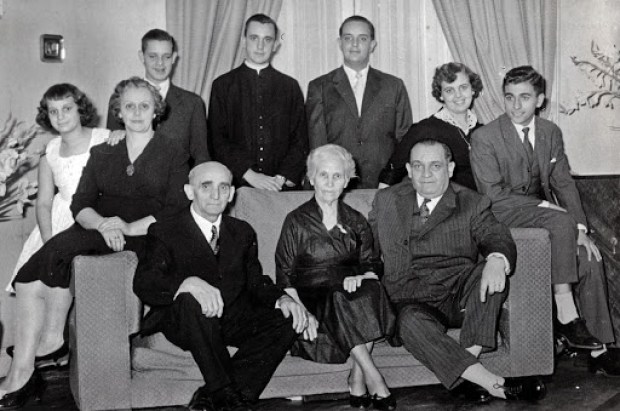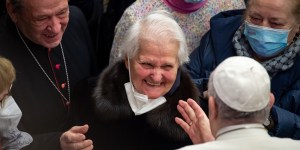In the history books, Francis will be remembered as the first pontiff from the American continent, a pope who came "from the ends of the earth." Under his reign, the Vatican took on a more Latino flavor. Above all, however, he has accelerated a form of "de-Italianization" of the Curia and the College of Cardinals, in a perspective more intentionally turned towards the peripheries than the center.
This vast undertaking has not made the pontiff many friends within the Church in Italy.
As Pope Francis makes his fourth visit to Italy, specifically to Trieste, on Sunday, July 7, we take a look back at the complex but essential relationship between Francis and his adopted homeland.
With the Italian bishops
Things got off to a rocky start between the Italian clergy and the Pope back in 2013, when the Italian Episcopal Conference inadvertently published a press release hailing the election of Cardinal Angelo Scola, archbishop of Milan and a favorite of the local media. This anecdotal blunder, while a mere mistake, could nevertheless be seen as a symbol of some of the real friction between the pontiff and some of the bishops of the peninsula.
As primate of Italy, the Pope has tried to break with the image of a Church in which some observers considered Cardinal Camillo Ruini, close to prime minister Silvio Berlusconi and president of the Italian Episcopal Conference (CEI) from 1991 to 2007, to be the country's most important politician.
Francis wants something other than a "small, comfortable, and satisfied Italy," to use the expression of Vaticanist Iacopo Scaramuzzi in his essay Tango Vaticano (Edizioni dell'Asino, 2015). He urged a process of reform in 2015 at a major meeting with the Italian episcopate in Florence, notably by launching a national synod that never came to fruition.
He has also advocated for a reform of the seminaries, believing that the selection of future priests in Italy needs more rigor.
The meetings with the CEI he attends sometimes show his desire for change. For instance, in 2021 — thinking he was speaking in a confidential environment — he scolded the Italian prelates' choice of a luxurious hotel chosen for their meeting. He said, "When I came in here, I had a bad thought: Excuse me: are we at a bishops' assembly or a contest to elect the most beautiful bishop?"
A very popular Pope
Nevertheless, the Pope also enjoys real support in Italy. A poll published in 2023 recognizes him as the reference point for Italians, ahead of their politicians.
He’s also a darling of Italian television, which never fails to relay his public messages every Wednesday and Sunday.
"[B]ig Italian media remains a safe space for the Vatican," commented New York Times journalist Jason Horowitz on X (formerly Twitter) after the pontiff's umpteenth appearance on a popular Italian TV program, seeing it as a sign that Italy still occupies a privileged place in the Church under Francis.

Land of his grandmothers
On a personal level, as a descendant of migrants from Piedmont and Liguria, Francis is deeply attached to the land of his ancestors.
The only personal visit of his pontificate to Asti, his father's homeland, was a case in point. While there, he seemed very happy to use the Piedmontese dialect he had probably learned in his youth from his beloved grandmother, "Nonna Rosa."
He never ceases to point out that it was from her, who kept Dante's language alive in the family home, that he received the "first proclamation" that would give birth to his Christian faith.
Ecclesial support in Italy
In Italy, the pontiff also enjoys real support on the international stage, as the country has been heavily involved in peace mediation and multilateralism since the end of the Second World War. This position is supported in civil society by numerous influential paradiplomatic networks such as the Sant'Egidio community, which for some has become a parallel diplomacy to that of the Vatican.

The pontiff has relied heavily on the members of this Catholic lay organization, which is highly committed to interreligious dialogue and the defense of peace at the international level. A notable representative is Cardinal Matteo Zuppi, Archbishop of Bologna, who took over as head of the CEI in 2022. And Francis has many who share the cardinal's goals within the Italian episcopate today — including those the Pope has appointed.
Finally, "Francesco" identifies with a certain "spirit of Assisi," having placed his entire pontificate under the figure of the Poverello. In fact, Assisi is the city he has visited the most— six times — outside Rome during his pontificate.
It’s a message for the local Church too, since St. Francis of Assisi is the patron saint of Italy.



